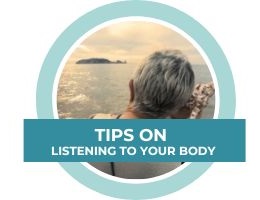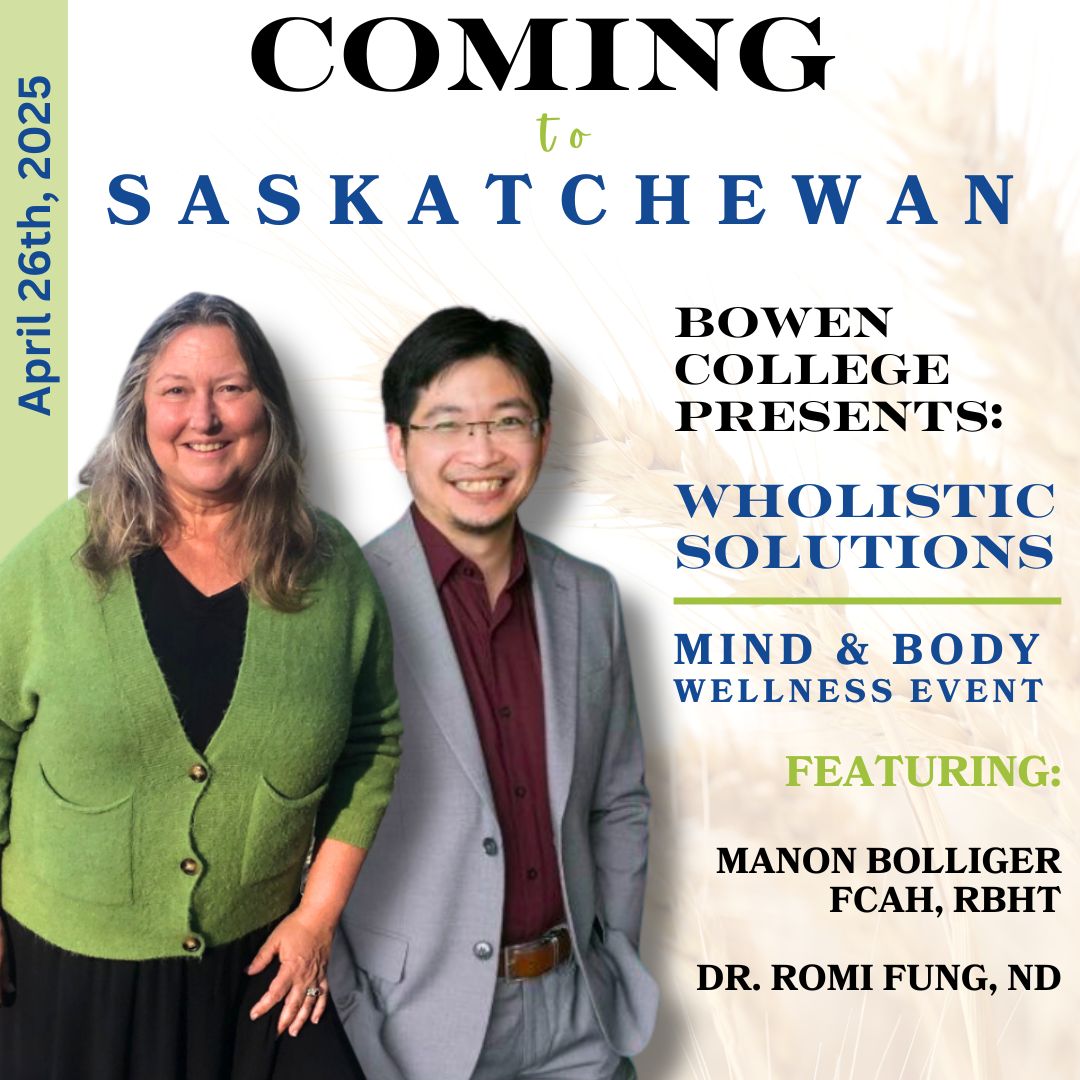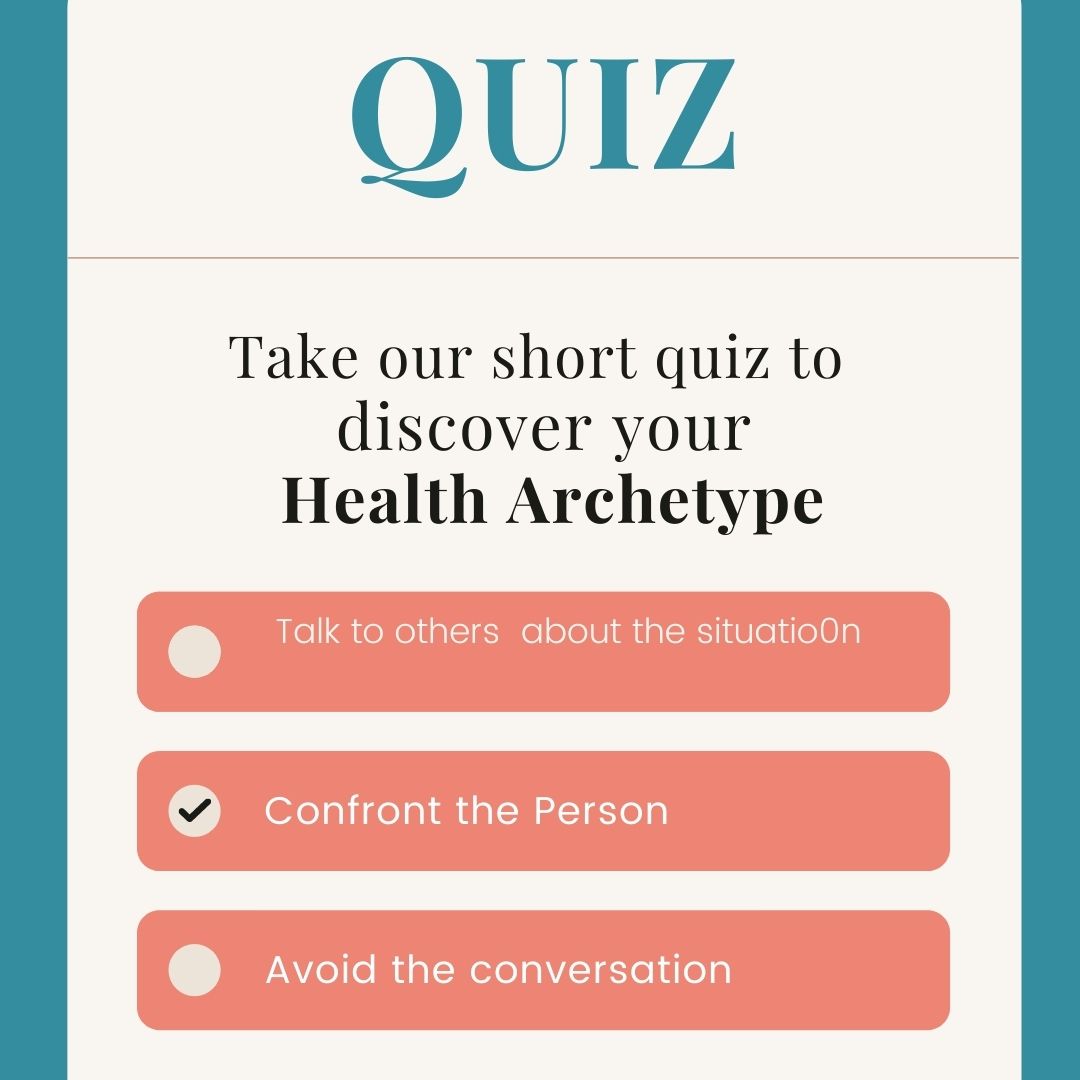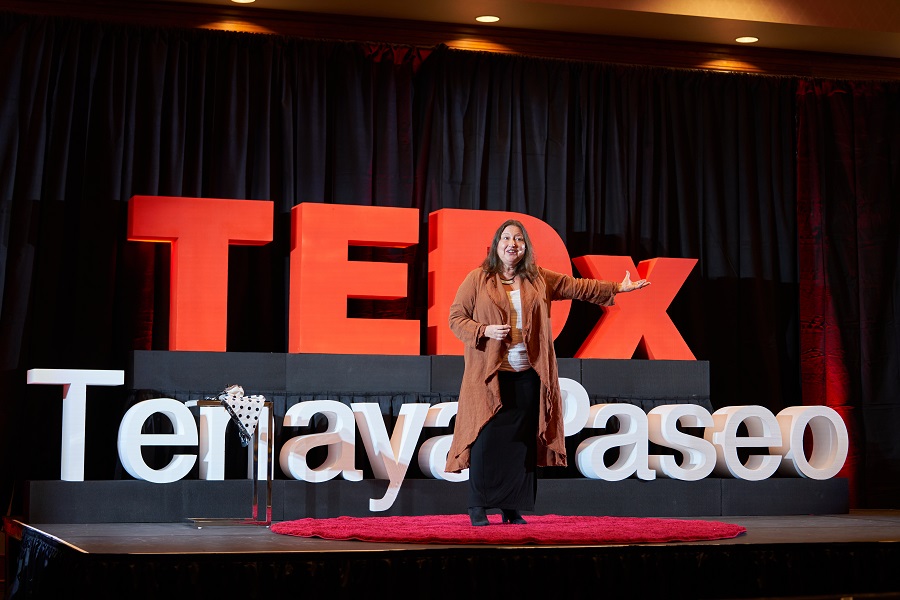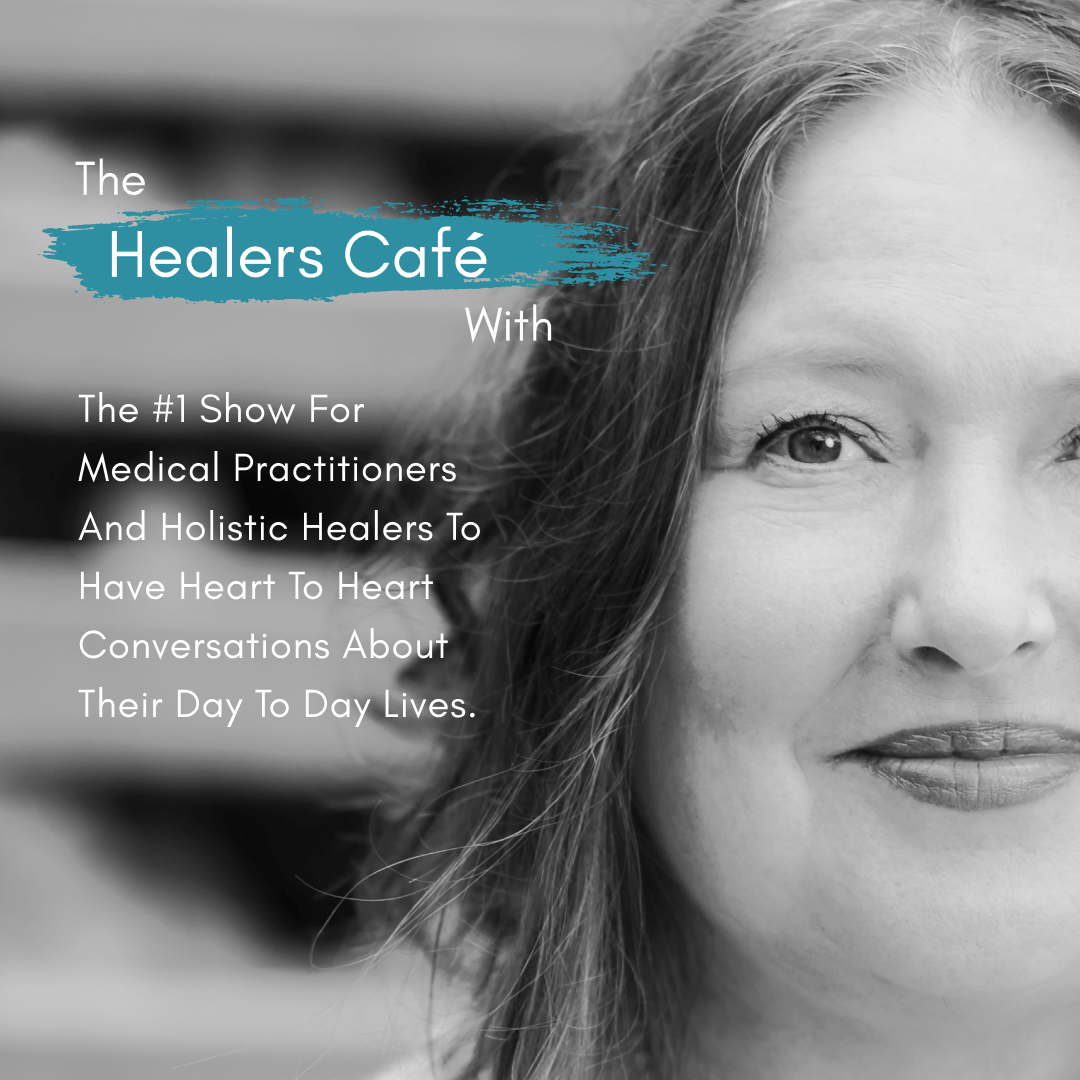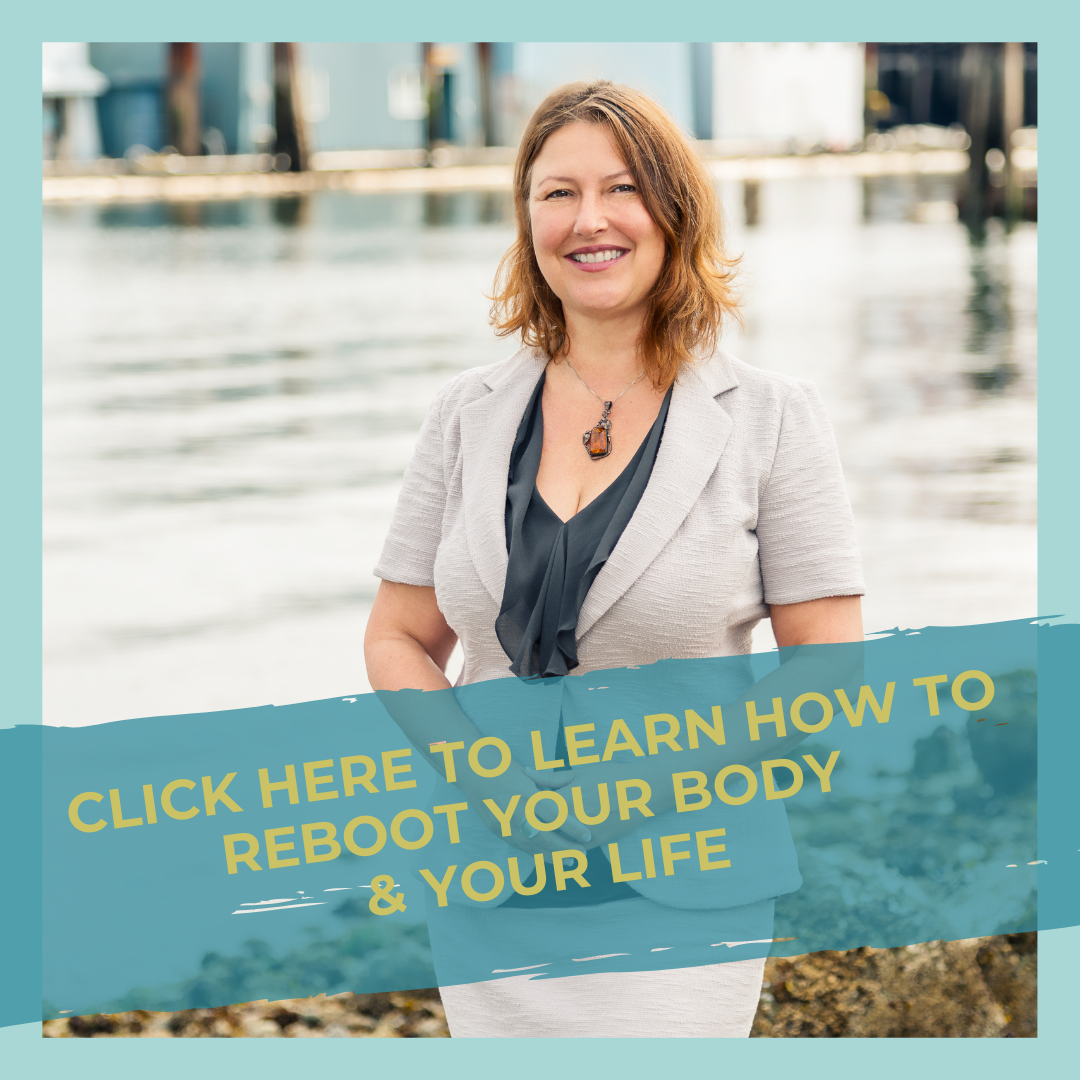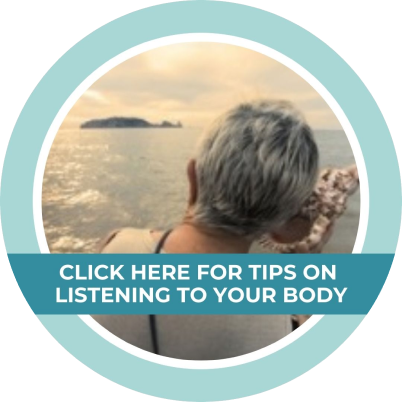
The #1 show for medical practitioners & holistic healers to have heart to heart conversations about their day to day lives.
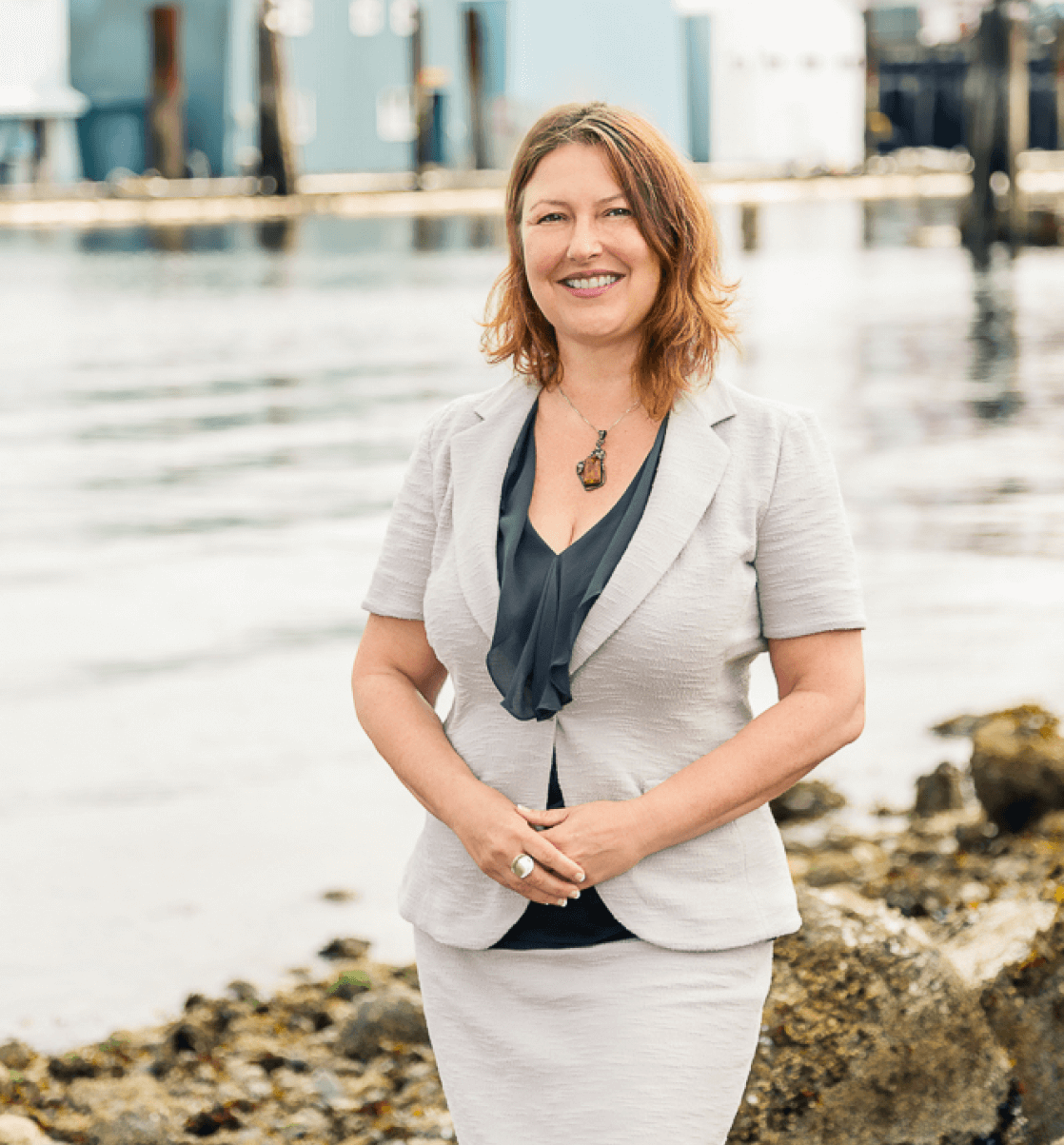
Manon Bolliger (Deregistered with 30 years of experience in health)
iTunes | Google Play | Spotify | Libsyn | iHeartRadio | Gaana | The Healers Cafe | Radio.com | and many more
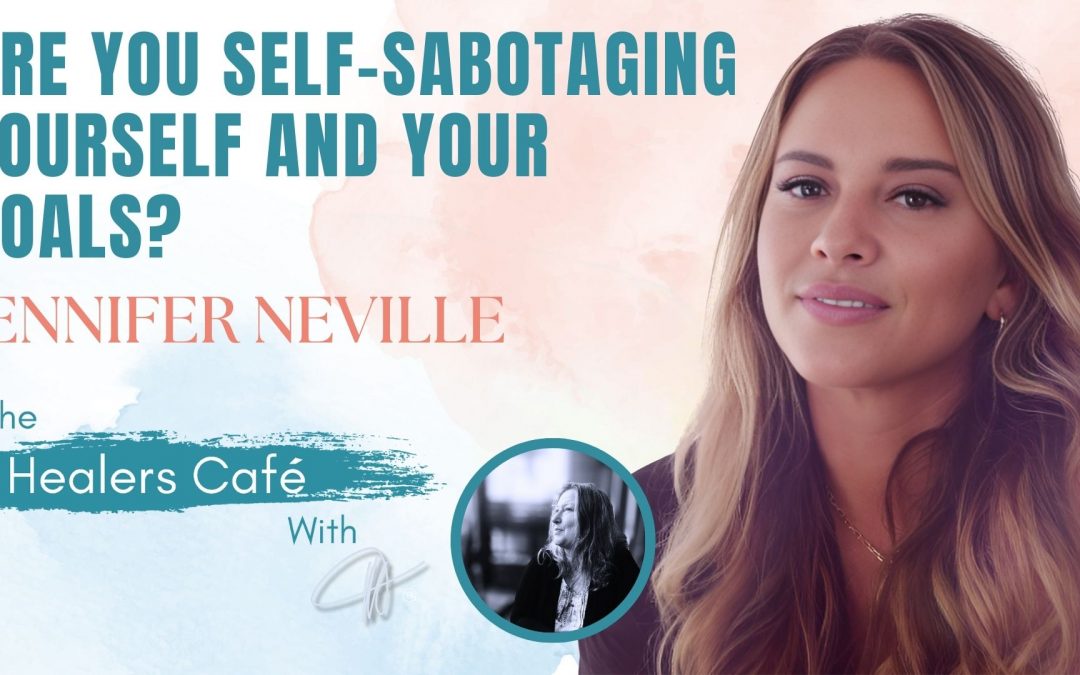
Jennifer Neville
The Battle Within: Understanding and Healing Through Hypnotherapy
In this episode of The Healers Café, Manon Bolliger, FCAH, RBHT (facilitator and retired naturopath with 30+ years of practice) speaks with Jennifer Neville about helping people connect with their subconscious to release past traumas and learnt behaviours.
Highlights from today’s episode include:
Jennifer Neville 07:14
Yeah, so in hypnotherapy, when we do a parts therapy session, it’s really cool, because it’s essentially going in and you’re talking to the part of you that self-sabotages, or you’re getting to the root of, like, who this part of you is.
Jennifer Neville So it’s a wide spectrum, but the way that they train us, which I really liked this, it was from this perspective of you show up, you don’t show up to somebody’s sandbox with your tools, you show up to their sandbox, and you have to learn how to use their tools.
– – – – –
Jennifer Neville Why does this thing that I’m seeing in my reality make me so upset? And if I can find that peace within myself, then that what’s happening external to me isn’t going to have such a effect on me anymore, you know.
ABOUT JENNIFER NEVILLE:
As a former professional golfer turned Certified Hypnotherapist, Jennifer Neville is no stranger to pursuing passions and developing the right mindset. Currently, Jen is helping people find their purpose and potential through mediums such as mindset manifestation, intuitive coaching, and hypnotherapy techniques.
She has studied the power of the subconscious and has seen firsthand how powerful the breakthrough is. With proper focus, specifically on reframing your core underlying beliefs and blockages, you are capable of dramatic changes by shifting those thoughts, reprogramming your subconscious, and creating new neural pathways that align with the goals you want to manifest. She is an expert on teaching specific routines and techniques in her hypnotic programming package and her own revelations on healing deep core wounds to create desired lifestyle changes.
A true thought leader in the industry, she provides a mix of the practical with the magical in order to help you reach your maximum potential and start living the life of your dreams. Her Re-Mind Method facilitated her own 45+ pound weight loss, inspiring her to assist others on their healthy journey. With a focus on reframing core beliefs and blockages, she helps individuals create dramatic changes by reprogramming their subconscious. Through her hypnotic programming package, she shares specific routines and techniques for healing and lifestyle changes.
Core purpose/passion: Helping and healing others. I am passionate about expanding people’s limiting beliefs and showing them that they can do whatever they can do.
Website | Instagram | YouTube |
ABOUT MANON BOLLIGER, FCAH, RBHT
As a recently De-Registered board-certified naturopathic physician & in practice since 1992, I’ve seen an average of 150 patients per week and have helped people ranging from rural farmers in Nova Scotia to stressed out CEOs in Toronto to tri-athletes here in Vancouver.
My resolve to educate, empower and engage people to take charge of their own health is evident in my best-selling books: ‘What Patients Don’t Say if Doctors Don’t Ask: The Mindful Patient-Doctor Relationship’ and ‘A Healer in Every Household: Simple Solutions for Stress’. I also teach BowenFirst™ Therapy through Bowen College and hold transformational workshops to achieve these goals.
So, when I share with you that LISTENING to Your body is a game changer in the healing process, I am speaking from expertise and direct experience”.
Mission: A Healer in Every Household!
For more great information to go to her weekly blog: http://bowencollege.com/blog.
For tips on health & healing go to: https://www.drmanonbolliger.com/tips
SOCIAL MEDIA:
– Linktr.ee | Rumble | Gettr | Facebook | Instagram | LinkedIn | YouTube | Twitter |
About The Healers Café:
Manon’s show is the #1 show for medical practitioners and holistic healers to have heart to heart conversations about their day to day lives.
Subscribe and review on your favourite platform:
iTunes | Google Play | Spotify | Libsyn | iHeartRadio | Gaana | The Healers Cafe | Radio.com | Medioq | Audacy |
Follow The Healers Café on FB: https://www.facebook.com/thehealerscafe
Remember to subscribe if you like our videos. Click the bell if you want to be one of the first people notified of a new release.
* De-Registered, revoked & retired naturopathic physician after 30 years of practice in healthcare. Now resourceful & resolved to share with you all the tools to take care of your health & vitality!
TRANSCRIPT
Introduction 00:00
Welcome to the Healers Café. The number one show for medical practitioners and holistic healers, to have heart to heart conversations about their day to day lives, while sharing their expertise for improving your health and wellness.
Manon Bolliger 00:20
So welcome to the Healers Cafe. Ad today I have with me Jennifer Neville, and she has an interesting story. She was a former professional golfer and then became a Certified Hypnotherapist. So you know, mindset as we all know, is very important in sports and obviously becoming a Hypnotherapist. Now, there’s, like, a wider range of people that Jennifer is able to help. So I wanted to discuss with you specifically what’s the difference between mindset and, you know, willful positivity and that type of thing. But before we go there, what happened like, how did you go from golfing to deciding that this is what you’re going to be doing.
Jennifer Neville 01:21
So I played golf my whole life, since I was nine years old, and my whole identity was wrapped up in golf. And since I was nine years old, I always had the dream of becoming a professional athlete. And I knew from an early age, especially in golf, that mindset was really, it’s 90% mental, you know, you’re doing all the physical stuff, but to really reach that elite space, probably for any athlete, it’s going to be contingent on having the proper mindset. And that became something that I was really passionate about, and I would study, sort of more spiritual and esoteric teachers, learning like Eckhart Tolle, The Power of Now, or just how I could be more still, having, like an early on meditation practice, which sort of reverse led me to from like I started esoteric, to becoming way more practical and logical and learning about the subconscious mind and really how we create everything. We create our experience of reality based off of the thoughts and the things that we believe. And so it was just natural when I when I walked away from golf, because I knew it wasn’t something that I wanted to pursue anymore. By the time I had played for four years, I just knew it wasn’t, it wasn’t like something I wanted to continue doing. And it was really hard for me to walk away from because my whole identity was wrapped up in it. I didn’t know who I was if I wasn’t a golfer, but I always knew how passionate I was about mindset and helping other people and my own healing journey. So right after I had finished playing golf, I started getting hypnotherapy done on myself, I found, like, this amazing hypnotherapist who ……
Read more...
changed my life. And it was like, a couple years later that I sort of sat down and decided, okay, I should be doing I was doing the mindset coaching. But then I realized, like, why haven’t I got my hypnotherapy certification yet? I’m so passionate about this, so I sort of buckled down. It was a year long, 500 hours, and I am so happy, because the year of studying it alone helped me so much. And to your testament of like willfulness versus like mindset. I used to always be that person who was like positive, or I have to be positive. I have to be…I need to believe in myself. And I always had that hope. But then there was this part of me that would always say my hope is like I almost resented that hope that I felt, and I realized it was this false positivity. I was being positive, but I wasn’t. I wasn’t believing in the positivity, not really. And it wasn’t until I started doing like the deep inner work, and doing this work with my subconscious that I was able to sort of give myself the power and give myself the control of, like my experience of reality. And I was able to kind of shift into not this like false confidence or this false positivity, where it was like, I’m relying on the hpe, but actually feeling like I have a grasp on, maybe not the world around me, but the way that I react and engage with the world, I started being able to like control that, and it made that made me more confident in myself, which, in turn, kind of I relied less on the hope or the willfulness, if that makes sense.
Manon Bolliger 05:29
Yeah, I know it does. Yeah. So, when…here, you’re sort of, in part through your own experience explaining, and then the difference is, one is, it’s a belief, but you’re not aligned with it fully.
Jennifer Neville 05:49
Yeah.
Manon Bolliger 05:50
Then there’s a story or another set of thoughts that contradict your statement.
Jennifer Neville 05:58
Yes
Manon Bolliger 05:59
Right? And then the contradicting statement negates it.
Jennifer Neville 06:05
Yes.
Manon Bolliger 06:06
Because you’re not true to yourself. You know.
Jennifer Neville 06:09
Exactly.
Manon Bolliger 06:10
Right?
Jennifer Neville 06:10
And a part of me, because that’s something that we practice in hypnotherapy. It’s called parts therapy, and it wasn’t that like exactly when you say a part of myself, there was a part of me that felt positive and hope, but then I was not acknowledging the part of me that was maybe scared and maybe didn’t have the proof of okay, you’re saying all these things, but it’s never worked out for us in the past, so I don’t trust the hope that you’re trusting, and it’s bringing those two parts of yourself into alignment, so that you know that part of me had something to trust, which ended up being myself.
Manon Bolliger 06:56
Right. So, so are you able to explain in a simple way, what that process is of joining what would appear to be contradictory, in a sense, equivalent but opposite viewpoints.
Jennifer Neville 07:14
Yeah, so in hypnotherapy, when we do a parts therapy session, it’s really cool, because it’s essentially going in and you’re talking to the part of you that self-sabotages, or you’re getting to the root of, like, who this part of you is. So say, if you know there’s a part of you that doesn’t like public speaking, or you freeze up every time, like, you can go in with parts therapy, and you can communicate directly to that part. And basically, you’re amplifying, there’s an intake process beforehand, and then you’re amplifying the emotions and calling that part to the surface while you’re under hypnosis, and interviewing that part and finding out, like, why it’s behaving the way it’s doing, why it’s sabotaging you, what’s it afraid of? What is this stemming from? And then you facilitate dialog between these two parts of you, and it’s interesting, because you’ll see clients like fighting themselves, and that’s what’s happening. That’s the internal dialog that’s happening every time say you would go to public speak, you’re having this fight, and I’m getting to witness it and facilitate, obviously, the Gestalt, what we call it, like bringing it into oneness, where it’s like, okay, well, what can you do to help this part feel more safe, so that it can show up how it needs to. And part, what do you need in order to feel safe, helping so and so achieve their ultimate goal? Right?
Manon Bolliger 08:54
Mm, hmm, right. So how, when people choose to do hypnotherapy, do you think that there’s a lot of belief systems about it that make people hesitate to do it. Or have you had to deal with a lot of misconceptions about it?
Jennifer Neville 09:19
Definitely a lot of misconceptions. I think people see horror movies like Get Out and think that, you know, they’re not going to be in control. But the reality is, is like, if you’re booking a hypnotherapy session, that’s the first step of, you want to get better. You want to, you know, a lot of, there’s a lot of stop smoking clients, people who want to stop smoking, and there’s a part of you that wants to get better. There’s also a part of you that wants to continue smoking, probably, and then that’s that internal battle. But normally, by the time people have booked the hypnotherapy, they’re open to it. But yeah, you get. All types of people. You get people who are skeptical. You get people who are like, super esoteric and want to go to past lives and things like that. So it’s a wide spectrum, but the way that they train us, which I really liked this, it was from this perspective of you show up, you don’t show up to somebody’s sandbox with your tools, you show up to their sandbox, and you have to learn how to use their tools. So that’s part of like the even before you take a person into ypnosis, you are finding out, like, what is your higher perspective? What is your you know…what’s your relationship to higher perspective and really getting to know who they are, so that you are able to communicate them in their in their voice. You know?
Manon Bolliger 11:01
Yeah, no, I see that. I mean, it’s important, because otherwise, you’re at two different pages, right? That’d be, yeah, the it’s, I think it’s really important that the hypnotherapist be flexible to use the language of the client. Now, as far as languaging, in that sense, if a person brings and again, you don’t have to agree, of course, right? In fact, please say so if you don’t. I get to learn more stuff, but so let’s say you have an inner conflict, right? You go back to the stage talking or something, right? I was reading that you had quite a success with weight loss, but there’s a big epidemic of that.
Jennifer Neville 11:52
Yes.
Manon Bolliger 11:54
So you have one part of you that clearly wants to lose weight, for example. And I mean, there’s a whole bunch of misconceptions about it and false things about it, and false hopes and the magic pills that don’t work and things like that, right? So there’s a lot of like, what I would call rational, intellectual stuff you gotta, you know, there’s a certain amount of truth that must be surfaced, right? Like, if you’re totally toxic and you want to lose weight, good luck, right? Like, so, you have to have a strategy that makes sense on some level, right? I think that the inner part where, if there’s like, a sugar addiction, or where those are obvious, evident, self sabotages, right?
Jennifer Neville 12:42
Yes, yes
Manon Bolliger 12:44
Sure that I can understand how a conflict like that you want to go what, you know, what did the what did the sugar do? Was it a soother? When did you get it? Or young and, you know, is there a story or a feeling attached to it. Is this how you get you know, how you feel looked after, etc. So you’re again breaking belief systems and and such, right? Yes, but a lot of that, as far as I look at it, I can see it rationally, like they can…it’s like this discussion is not under hypnotherapy, yeah. Why is it that it’s under hypnotherapy that you see changes?
Jennifer Neville 13:38
So I think because one, and especially when we’re talking about weight loss, because that’s something, again, I’m very passionate about helping people with, just because the weight loss is sort of, it’s a disguise for all of the emotions that are stored in the body. And I think in you know that’s what’s happening, is trauma gets stuck in the body. Emotions get stuck in the body. It’s a lack of processing. Because, again, we’re sort of emotional eat. A lot of people struggle with, like, emotional eating, eating, our feelings. You hear all these things, and it’s definitely true. So when you’re under hypnosis, and you don’t always, like, I don’t always have to take my clients into hypnosis with the method that I use, um, I’ve kind of simplified it, and I just immediately getting get them into that feeling state, then I don’t even have to take them under because once you access the emotions, you’re there, you’re that child again, right? You’re, you’re that part of you. Because even the parts of you, they’re normally her inner child, or it’s taking you back to these feelings when you bear it, break it down to like the bear bones of what am I feeling, and how do these feelings make? What do I believe about myself because of these feelings? You are in your body. You’re in the feeling state. You’re back in that memory. And it’s so easy to get somebody Okay, what does this remind you of? What does this remind you of? A memory from childhood, a relationship from childhood, and they’re there. But I think some people struggle to get to that place, and that’s when it comes in handy having, like the induction techniques, to have somebody who’s maybe more repressed, access that that stored emotion.
Commercial Break 15:43
What would your life be like if you were pain free, if you were one of the millions who suffer from chronic pain? The thought of just one day without it may seem impossible. This is often because conventional medicine tends to fall short in the treatment of pain, opting to prescribe pills or recommend surgery rather than getting to the root cause of the problem. But if you are suffering with emotional or physical pain, there is hope. Join the founder and CEO of Bowen College, Manon Bolliger, live online for Your Body Mind Reboot. Learn how to listen to your symptoms and get to the root cause of your pain, plus be trained in basic bone therapy moves so that you can reboot your body for optimal health. You don’t have to live in pain. You can heal, stop the pain pill cycle by visiting www.yourbodymindreboot.com to learn more and to register.
Manon Bolliger 16:54
Okay, I think that’s really well explained, yeah. Because I’ve tried, of course, I’ve done hypnotherapy, you know, as a doctor in the past I have to say. I’ve, you know, I’ve tried so many different things to see, yeah, what would be a good referral for people? But that was a bit my conclusion is that if you can connect to the feeling state, actual emotion. And can realize, oh, my God, I was like this when I was five, or, whatever happened, you’ve kind of done the process. I mean, in a sense, you have to, you know, see the child, and love it, and, you know, whatever, and understand that it did the best it could, and all the you know what, what’s normally done, so that you bring it up to speed and go, Hey, now you two are friends and you’re one, actually.
Jennifer Neville 17:51
Yeah. And having them communicate with that inner child is always so powerful. And it’s obviously, you know, not to sound like crazy, but when I have my clients and they’ll start crying, and they’re like, Oh no, I’m going to start crying. I’m so sorry. And I’m like, No, this is making me so happy. Like, you’re having a release, you know, like, that’s so good. I want you to cry.
Manon Bolliger 18:19
Yeah, yeah. Well, it’s very different than, you know, I think in our society, there’s a lot of victimhood, and then the crying is more like the complaining of this happened for me, they this happened to me. They did it to me. You know, when you kind of go from the position of radical responsibility, then you’re, you’re in another state of mind, right? You know you’re not going to have that. It’s going to be a release cry. It’s a true healing cry. It’s not a victim cry.
Jennifer Neville 18:59
Yeah.
Manon Bolliger 19:00
As long as you’re in the victim, you’ve created the story. You believe the story more than the emotion.
Jennifer Neville 19:07
Yes.
Manon Bolliger 19:08
Right? You don’t want the emotion exactly, so you cover it with a well narrated story. That’s kind of how propaganda works.
Jennifer Neville 19:16
Yes, yes.
Manon Bolliger 19:18
So if you’re once you let go of if you take, you know, how am I…in which way am I responsible for this discussion? It’s like emotions can really come, you know, at least that’s how I’ve seen it in Yeah, you’re into it.
Jennifer Neville 19:40
Well, and once they have this realization of, okay, this initial thing happened when I was young and a child, and perhaps I was a victim to this circumstance, but then I think the bigger realization comes when they realize like, oh, but I’ve been perpetuating this with myself, right? I’ve been doing it to myself. It happened that one time, but I’ve continued the cycle. And I think that’s when people have that big shift and that breakthrough, when they can expose that, that story that they’ve been telling themselves.
Manon Bolliger 20:16
Yes, yeah, no, that totally makes sense. Yeah, because that’s what we do. We carry it on, right? Rght, yeah. So how much do you think, um, consciousness plays into the healing process?
Jennifer Neville 20:36
So I know that they teach us in hypnotherapy, you know, the conscious mind needs to be present for all the subconscious work. Because I know a lot of people are like, Oh, it’s okay if you fall asleep, and we really do a lot of testing to make sure that you’re not asleep, because your conscious mind needs to be aware of what’s happening. And it’s like teamwork, you know. But I think consciousness, like I just see it as that’s kind of that part of us that wants the change. But then there’s that subconscious that’s more it runs on auto programming, right? And it’s really hard to override that programming. So that’s what we’re striving for, is how to, how to at least be aware of our base programming, I guess, and that’s what happened to us in childhood. And it’s not saying like, we can override the coding by at least realizing, like, that fight or flight response when it kicks in, what triggers it and how to say like, this isn’t real. This isn’t happening, and keep systems moving forward, you know, not revert back to that old programming.
Manon Bolliger 21:59
Yeah, and I think too, it helps when people understand that the subconscious, it’s really…its job is to keep you safe, whatever that was. So in childhood, you know, you probably did exactly what was the safest thing for you to do. But then it’s not necessarily the behavior that is correct for an adult.
Jennifer Neville 22:23
Yes,Yes, exactly.
Manon Bolliger 22:25
You know. So it’s like, that’s where I could see the bridge between the subconscious as being automatic safety, you know, yeah, not there to experience a brand new life or no, it’s there to repeat, you know, the this is how, this is what works. This is, you know, be quiet, and whatever the story was.
Jennifer Neville 22:46
And it requires a lot of conditioning, you know, to make those changes, which is where, like, our conscious mind comes into play, and, and, yeah, just kind of recognizing what that default programming is, what is that? You know, it’s how we you call it self sabotage, right? But that’s our default programming, whatever it’s reverting back to. The more that we can build awareness of that, the more we can like combat it, you know.
Manon Bolliger 23:18
And how important do you think the other way, rather than reverting back, is to positively set up, you know, whether it’s systems, trainings new habits, how effective do you think that is?
Jennifer Neville 23:37
I think it’s very effective. I think the subconscious response to repetition and conditioning, so the more you repeat the actions, and that’s where kind of, the Conscious Discipline comes in of having some kind of discipline or routine, whether it’s listening to affirmations or, you know, doing some kind of action, or forming some kind of habit and really beating that into yourself. That is something that I learned from my professional golf days or being a golfer. It was everything was repetition. It wasn’t about practice makes perfect. It was about practice breeds confidence, because then when you’re under those high pressure situations, I always knew what my faults were. I always knew what was if, if I started getting like I knew what my misses were, right? So when I’d be under pressure, those misses would start presenting themselves more, but I was aware of it, and so a lot of my practice was in an attempt to, like, not fall into that, or when those high pressure situations come, I feel confident enough to not revert back to those misses, and even if I do revert back to those misses, having like a plan to get myself out of it, even if it’s playing to the misses, you know, and it’s the same thing. I think, with any goal, you’re trying to achieve repetition and just conditioning.
Manon Bolliger 25:22
So what’s without names and all that, obviously, but can you share someone you’ve been able to help that either was really meaningful, totally surprising to you, or, yeah, I don’t know you know that just made your day and made you love what you do.
Jennifer Neville 25:44
I’ve had so many people that I’ve helped you know, I’ve helped people work through very deep trauma. And at first that was something that I knew. I knew working in what I work in, that that was going to come up, things like that was going to come up, and that scared me, but once I started helping clients through that, it was this really beautiful experience, and I learned so much too about the mind and the universe and forgiveness through witnessing and holding space for people. But, you know, I’ve gotten to work with people on especially with the weight loss, it’s been like a big thing where you’re focused more on the body, and there might be physical pain in the body that you focus on that physical pain, and it ends up being this stored memory, this like very repressed memory, and once they clear that and release that, and then I get those messages talking about how they don’t feel the pain anymore. Those are really rewarding, I think, to help, to help somebody process something that they’ve been avoiding for so long, you know, so long that it turned into a physical ailment.
Manon Bolliger 27:10
And if you, one more question, and then I’ll leave you with the final words, but can a person go to hypnotherapy doing that. Is it like the appropriate thing when they have zero idea, but they have a something that they just can’t shake, you know? Like it could be a physical ailment, you know, they can’t shake, or it could be an emotional state that they can’t shake, you know, like, you know, common ones these days are like regret, you know, or feeling, what’s the word betrayed?
Jennifer Neville 27:57
Yeah.
Manon Bolliger 27:57
A lot of people are complaining about that. So how would you address that? Like, what’s it? And again, I’m sure it’s different, but and they, they’ve never done it, they don’t know, you know, and you and they believe that it could work. So not all the misconceptions. How would you approach that?
Jennifer Neville 28:22
Well, for starters, I just want to clarify that if anybody comes to me with like, serious mental health concerns, there is they do part of like being a clinical hypnotherapist, you have to be signed off by a psychiatrist, like a doctor has to basically offer have a letter of recommendation for that client. But utilizing things like betrayal, I help a lot of people in love and relationships, working on releasing from breakups or trauma from that and I think hypnotherapy, like I said, it helps, and obviously, depending on the severity and tandem with other other, you know, therapies can help you a lot. I think that it helps you connect with yourself. And I do think that, especially if we’re talking about relationships or anything that you’re experiencing externally, and once you bring this awareness to it really is you, you’re creating all of this, and then you can get to the root of, why am I so affected by this? Because ultimately, and if people could grasp this, you know, because we get sucked into this world and everything that’s happening to it and the news and the propaganda, like you said, we’re sucked into it all the time, and it makes us feel powerless and hopeless, and like we want to change it, but there’s nothing that we can do. How do we get mass amounts of people to change? And hypnotherapy, or even doing this mindset work, I think, helps people realize the first thing I have to do is get myself to a place where I’m not triggered or reacting to this. So that’s helping you come to the root of why. Why does this thing that I’m seeing in my reality make me so upset? And if I can find that peace within myself, then that what’s happening external to me isn’t going to have such a effect on me anymore, you know.
Manon Bolliger 30:45
Yeah, makes sense, yeah. Okay, well, you know what? That’s our time already. Last few words, maybe where people could reach you, or how do you work, or website or information that you want to share?
Jennifer Neville 31:00
Yes, my Instagram is JenniferNNeville, and my website is www.livezenwithjen.com. If you’re interested in coaching or anything of that sort, or just following me online and hearing what I have to say, then be sure to check those out. And again, thank you so much for having me.
Manon Bolliger 31:20
Okay, well, thank you for sharing your knowledge.
Ending
Thank you for joining us at the Healers Cafe. If you haven’t already done so, please like, comment and subscribe with notifications on as I post a new podcast every Wednesday with tons of useful information and tips for natural healing that you won’t want to miss, go to DrManonBolliger.com/tips for more tips
* De-Registered, revoked & retired naturopathic physician, after 30 years of practice in healthcare. Now resourceful & resolved to share with you all the tools to take care of your health & vitality!
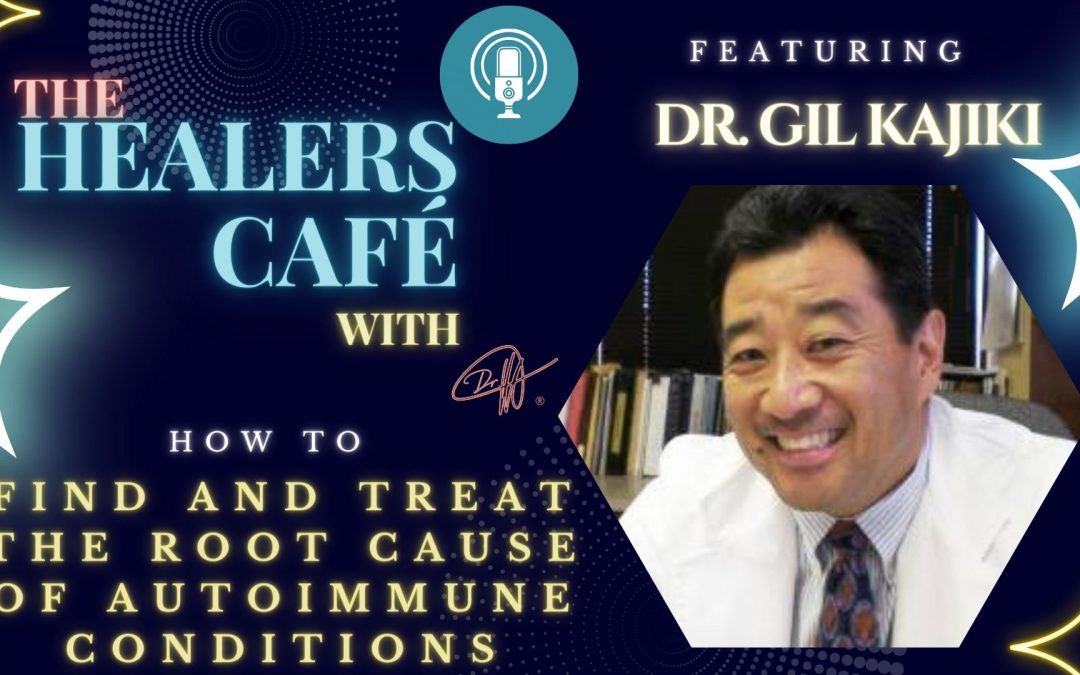
Dr Gil Kajiki
How to Find and Treat the Root Cause of Autoimmune Conditions with Dr Gil Kajiki on The Healers Café with Manon BolligerIn this episode of The Healers Café, Manon Bolliger (facilitator and retired naturopath with 30+ years of practice) speaks with Dr Gil Kajiki who...
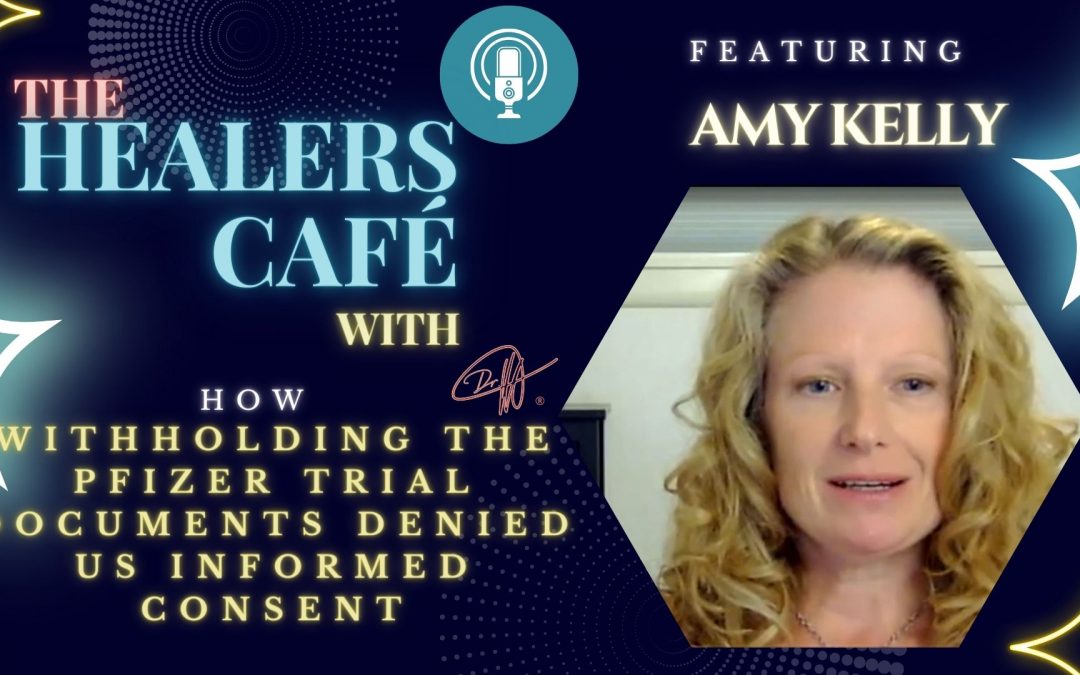
Amy Kelly
How Withholding the Pfizer Trial Documents Denied Us Informed Consent with Amy Kelly on The Healers Café with Manon BolligerIn this episode of The Healers Café, Manon Bolliger (facilitator and retired naturopath with 30+ years of practice) speaks with Amy Kelly the...
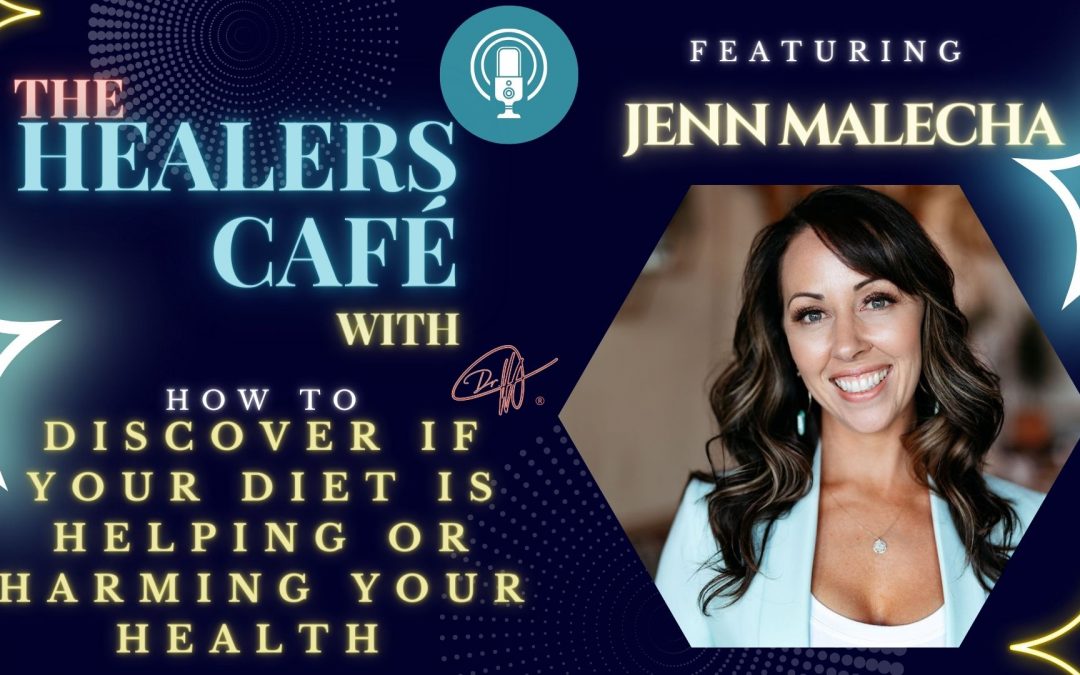
Jenn Malecha
How to Discover if Your Diet is Helping or Harming Your Health with Jenn Malecha on The Healers Café with Manon BolligerIn this episode of The Healers Café, Manon Bolliger (facilitator and retired naturopath with 30+ years of practice) speaks with Jenn Malecha about...
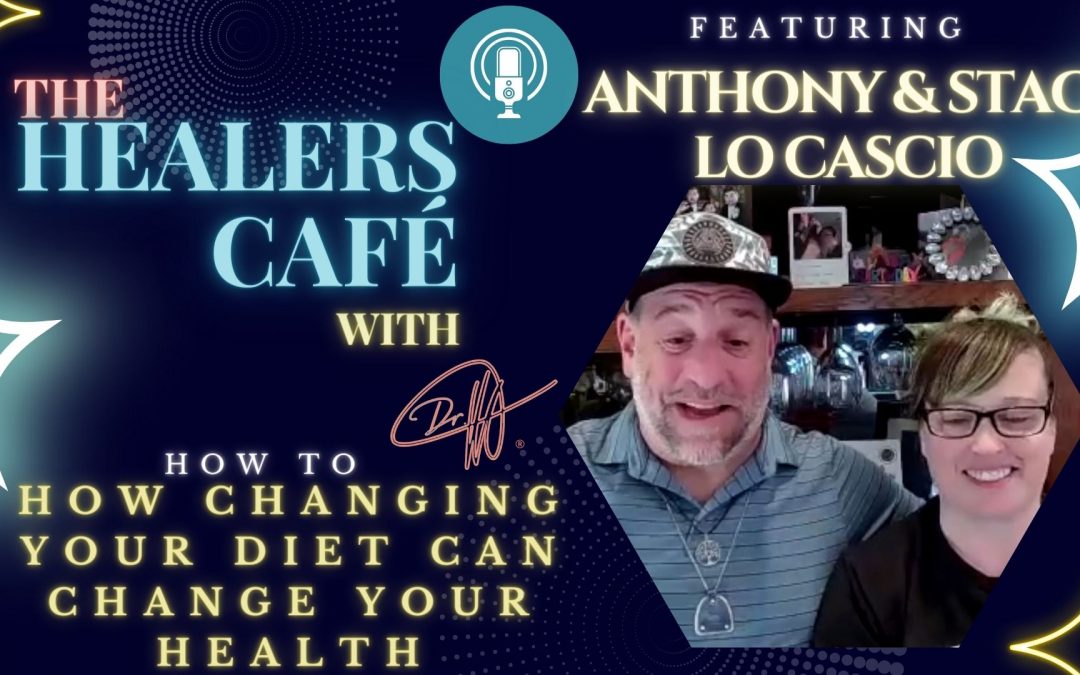
Anthony & Staci Lo Cascio
How Changing Your Diet Can Change Your Health with Anthony & Staci Lo Cascio on The Healers Café with Manon BolligerIn this episode of The Healers Café, Manon Bolliger (facilitator and retired naturopath with 30+ years of practice) speaks with Anthony & Staci Lo...
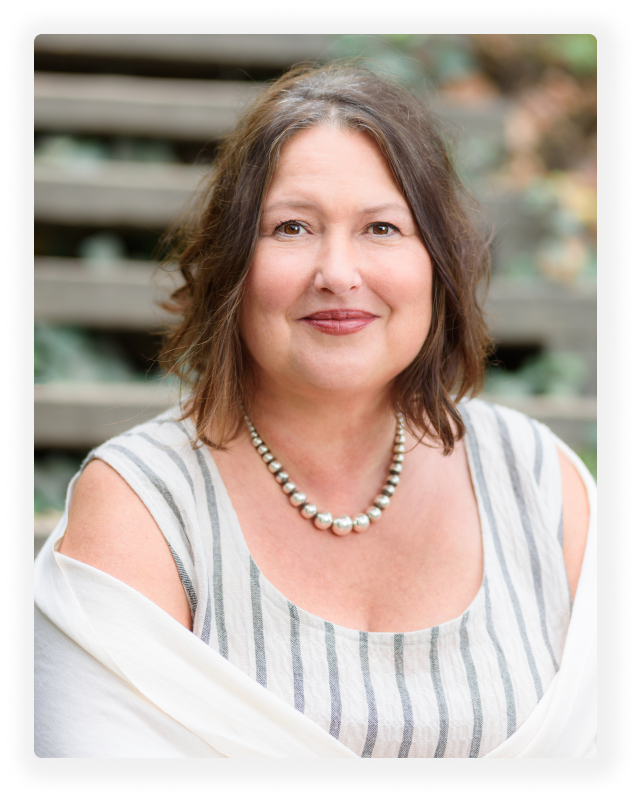
A Better Way To Connect With People
Manon is a newly retired Naturopathic Doctor, the Founder of Bowen College, an International Speaker, she did a TEDxTenayaPaseo (2021) talk “Your Body is Smarter Than You Think. Why Aren’t You Listening?” in Jan 2021, and is the author of 2 Amazon best-selling books “What Patient’s Don’t Say if Doctors Don’t Ask” & “A Healer in Every Household”.
FollOW MANON ON SOCIAL MEDIA
Manon Bolliger, FCAH, RBHT
Facilitator, Retired naturopath with 30+ years of practice, Business & Life Coach, International & TEDxTenayaPaseo (2021) Speaker, Educator, 2x Best Selling Author, Podcaster, Law Graduate and the CEO & Founder of The Bowen College Inc.
* Deregistered, revoked & retired naturopathic physician after 30 years of practice. Now resourceful & resolved to share with you all the tools to take care of your health & vitality!
![]()
